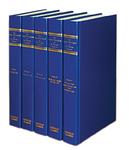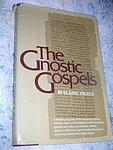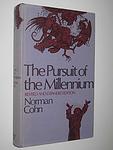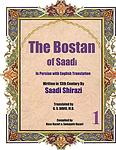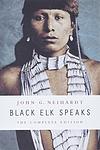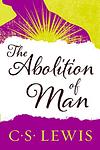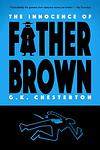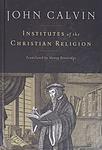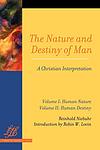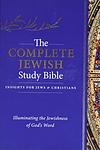The Greatest "Religion & Spirituality" Books of All Time
Click to learn how this list is calculated.
This list represents a comprehensive and trusted collection of the greatest books. Developed through a specialized algorithm, it brings together 305 'best of' book lists to form a definitive guide to the world's most acclaimed books. For those interested in how these books are chosen, additional details can be found on the rankings page.
Genres
The category of "Religion & Spirituality" encompasses books that explore various belief systems, practices, and experiences related to religion and spirituality. This includes books on different religions, such as Christianity, Islam, Buddhism, and Hinduism, as well as books on spiritual practices like meditation, yoga, and mindfulness. The category also includes books on personal growth, self-help, and inspirational stories that draw from religious and spiritual traditions. Overall, the category of "Religion & Spirituality" offers a diverse range of books that explore the human experience of seeking meaning, purpose, and connection with something greater than oneself.
Countries
Date Range
Reading Statistics
Click the button below to see how many of these books you've read!
Download
If you're interested in downloading this list as a CSV file for use in a spreadsheet application, you can easily do so by clicking the button below. Please note that to ensure a manageable file size and faster download, the CSV will include details for only the first 500 books.
Download-
51. Under Satan's Sun by Georges Bernanos
"Under Satan's Sun" is a gripping narrative set in the rural French countryside, where a young, idealistic priest struggles with his faith and the harsh realities of his parishioners' lives. He battles against alcoholism, loneliness, and the indifference of his congregation. The novel explores the themes of faith, despair, and redemption, offering a profound and introspective look into the human condition and the challenges of spiritual leadership.
The 1166th Greatest Book of All Time -
52. The Diary of a Country Priest by Georges Bernanos
"The Diary of a Country Priest" is a novel centered around a young, inexperienced priest assigned to his first parish in rural France. The narrative unfolds through the priest's diary entries, revealing his struggles with his health, faith, and the indifference or hostility of his parishioners. Despite the hardships, the priest remains committed to his vocation and the spiritual welfare of his community. His journey is marked by self-doubt, loneliness, and a humble yet profound understanding of suffering and grace.
The 1192nd Greatest Book of All Time -
53. Summa Theologica by Thomas Aquinas
This comprehensive text is a seminal work in the field of theology, written by a prominent medieval philosopher and theologian. The book is structured in a question-and-answer format, tackling complex philosophical and theological issues such as the existence of God, the nature of man, the purpose of life, and the intricacies of morality and ethics. It is one of the most influential works in Western thought, particularly in Christian theology and philosophy, and continues to be a vital reference in these fields.
The 1224th Greatest Book of All Time -
54. Thérèse Desqueyroux by François Mauriac
The novel revolves around the life of Thérèse Desqueyroux, a woman trapped in a loveless marriage in rural France. She is married to Bernard for the sake of property and wealth, not love. Feeling suffocated by the societal expectations and her husband's domination, Thérèse tries to poison Bernard. However, her plan fails and she is acquitted due to lack of evidence. The rest of the novel explores Thérèse's introspection, her struggle with guilt, and her quest for redemption and freedom.
The 1330th Greatest Book of All Time -
55. Fear and Trembling by Soren Kierkegaard
"Fear and Trembling" is a philosophical work that explores the concept of faith, drawing upon the biblical story of Abraham and his willingness to sacrifice his son Isaac. The author uses this story to delve into the paradox of faith, arguing that true faith requires a willingness to make personal sacrifices that may seem absurd or irrational to others. The book challenges conventional notions of morality and ethics, suggesting that faith may sometimes require actions that go beyond the bounds of societal norms.
The 1373rd Greatest Book of All Time -
56. The Gnostic Gospels by Elaine Pagels
This book explores the findings of the Nag Hammadi library, a collection of gnostic texts discovered in 1945. The author examines these texts, which were excluded from the canonical Bible, and discusses their implications for our understanding of early Christianity. The book delves into the diversity of beliefs in early Christian communities, the role of women in these groups, and the political and theological reasons behind the formation of the orthodox Christian canon.
The 1386th Greatest Book of All Time -
57. The Hero with a Thousand Faces by Joseph Campbell
This book explores the theory that important myths from around the world which have survived for thousands of years all share a fundamental structure, which the author calls the "monomyth." It outlines the stages of this monomyth, which include a hero's call to adventure, a descent into the underworld, and a triumphant return. The book also discusses how these universal patterns can provide a framework for understanding human experience and the world around us.
The 1453rd Greatest Book of All Time -
58. The Pursuit of the Millennium by Norman Cohn
This book provides a comprehensive historical analysis of millenarian movements in Europe from the 11th to 16th centuries. It delves into the social and psychological factors that led to the rise of these movements, which were characterized by the belief in an impending apocalypse followed by a new, heavenly order on earth. The author examines a number of these movements in detail, including the Crusades, the flagellant movements, and the Anabaptist kingdom of Münster, and argues that these millenarian ideologies were often used to justify violence and social revolution.
The 1458th Greatest Book of All Time -
59. Twice-Told Tales by Nathaniel Hawthorne
This book is a collection of short stories that delve into the complexities of human nature and society, often through the lens of New England Puritanism. The tales are characterized by their allegorical nature, moral lessons, and exploration of themes such as sin, guilt, and pride. The author's keen understanding of the human psyche and his ability to weave intricate narratives make this an engaging read.
The 1501st Greatest Book of All Time -
60. Masnavi by Jalal al-Din Muhammad Rumi
Masnavi is a collection of poems that offer deep and profound reflections on the various aspects of life. The author, a 13th-century Persian poet, philosopher, and theologian, uses lyricism and allegorical tales to explore themes such as love, divine mysticism, and the human condition. The work is highly regarded for its spiritual insight and wisdom, often drawing on Quranic verses and Hadiths for inspiration. It is considered one of the greatest works of Persian literature and a pinnacle of Sufi mystic tradition.
The 1560th Greatest Book of All Time -
61. Bostan by Saadi
"Bostan" is a classic Persian poetry book that delves into ethical philosophy and Sufism. The book is divided into ten chapters, each focusing on a different virtue such as justice, gratitude, love, and humility. The author uses beautiful and vivid imagery, along with tales and anecdotes, to illustrate moral and ethical lessons. The book is revered for its deep spiritual insights and wisdom, offering readers a guide on how to live a virtuous and meaningful life.
The 1561st Greatest Book of All Time -
62. Either Or by Soren Kierkegaard
"Either Or" is a philosophical work that explores the concept of existentialism through the lens of two contrasting life views: the aesthetic and the ethical. The aesthetic life is characterized by immediate pleasure and enjoyment, while the ethical life is defined by moral duty and responsibility. The book presents these two perspectives through the fictional letters of two characters, ultimately arguing for the superiority of the ethical life. However, it also suggests that a truly fulfilled life must find a balance between the two.
The 1641st Greatest Book of All Time -
63. Mencius by Mencius
"Mencius" is a philosophical text that presents the teachings and thoughts of Mencius, a follower of Confucius. The book is a compilation of dialogues, anecdotes, and allegories that illustrate Mencius's views on human nature, morality, and political theory. Central to his philosophy is the belief in the inherent goodness of human nature and the importance of cultivating one's moral character. The book also discusses his ideas on proper governance, advocating for a benevolent and virtuous ruler who prioritizes the welfare of the people.
The 1643rd Greatest Book of All Time -
64. The City of God by Augustine
The book is a philosophical and theological masterpiece, written as a defense of Christianity after the sack of Rome in 410 AD. The author contrasts the earthly city, characterized by pride and love of self to the point of contempt for God, with the heavenly city, characterized by love of God to the point of contempt for self. He argues that though the earthly city may seem dominant in the present age, the heavenly city will ultimately triumph. The book is a profound exploration of history, philosophy, religion, and the human condition.
The 1643rd Greatest Book of All Time -
65. Black Elk Speaks by John G. Neihardt
"Black Elk Speaks" is a profound narrative that recounts the life of a Native American medicine man from the Oglala Lakota tribe. It provides a unique perspective on the Lakota people's history and culture, their spiritual beliefs, and the impact of westward expansion on their way of life. The book also delves into the protagonist's personal spiritual visions, which he believes have significant prophetic and healing powers. The narrative is a poignant exploration of the clash between cultures and the devastating effects of colonization on indigenous peoples.
The 1686th Greatest Book of All Time -
66. The Abolition of Man by C. S. Lewis
This philosophical book explores the concepts of objective value and natural law, arguing that these are essential for moral reasoning. The author criticizes modern education for producing "men without chests," by which he means individuals who deny the importance of moral absolutes. He suggests that this could lead to the "abolition of man" as we traditionally understand him, replacing moral individuals with conditioned responses. The book also discusses the dangers of scientific advancement without moral considerations.
The 1735th Greatest Book of All Time -
67. The Life Written By Himself by the Archpriest Avvakum
"The Life Written By Himself" is an autobiographical account by the Archpriest Avvakum, detailing his life as a religious figure in 17th-century Russia. The book chronicles his struggles, including his conflicts with the Russian Orthodox Church, his imprisonment, and his eventual execution. Avvakum's narrative provides a unique perspective on the religious and political climate of the time, showcasing his unwavering devotion to his faith and his unwavering determination to uphold his beliefs, even in the face of persecution.
The 1754th Greatest Book of All Time -
68. I Ching by China
This ancient Chinese text is a divination system and book of wisdom. It provides guidance for moral and ethical decisions through 64 hexagrams, which are six-line figures made up of broken and unbroken lines. Each hexagram represents a specific situation or state of affairs, and the text provides interpretations and advice for each. The book has been used for centuries as a tool for decision-making, prediction, and gaining deeper understanding of situations and relationships.
The 1797th Greatest Book of All Time -
69. The Innocence of Father Brown by G. K. Chesterton
"The Innocence of Father Brown" is a collection of short stories featuring a Catholic priest who uses intuitive and psychological understanding of human nature to solve mysteries, often surprising those around him with his detective abilities. The priest's unassuming and humble exterior hides a sharp intellect and deep understanding of the human heart, making him an unlikely but effective sleuth. His adventures take him around the world, solving crimes that baffle the police and the public.
The 1885th Greatest Book of All Time -
70. Institutes of the Christian Religion by John Calvin
This book is a comprehensive introduction to Christian theology and doctrine, written during the Protestant Reformation. The text outlines the author's views on subjects such as the nature of God, the authority of scripture, original sin, and salvation through Christ. The book also provides a detailed examination of the Ten Commandments and the Apostles' Creed, while offering a critique of the Catholic Church and its practices. The author's interpretation of Christianity, as presented in this work, has had a significant influence on the development of Protestant theology, particularly within Reformed churches.
The 1981st Greatest Book of All Time -
71. Platform Sutra by Huineng
The "Platform Sutra" is an essential text in Zen Buddhism, presenting the teachings and philosophy of a renowned sixth patriarch. The book offers deep insights into the nature of enlightenment and the practice of dhyana (meditation). It emphasizes the concept of 'sudden enlightenment', asserting that it can be achieved by realizing one's own 'Buddha nature'. The text is also known for its promotion of direct, personal experience and the potential for enlightenment in all beings, irrespective of their social or educational status.
The 2018th Greatest Book of All Time -
72. Popol Vuh: The Mayan Book of the Dawn of Life by Dennis Tedlock
This book provides a comprehensive English translation of the Popol Vuh, the ancient Mayan creation myth. The narrative covers the genesis of the world, the adventures of the Hero Twins, the creation of humans, and the establishment of the Mayan civilization. The book also includes extensive commentary and notes, providing readers with a deeper understanding of the cultural and historical context of the Mayan myth.
The 2029th Greatest Book of All Time -
73. Mont-Saint-Michel and Chartres by Henry Adams
The book is a detailed historical and social analysis of the architecture, sculpture, and stained glass of two iconic French landmarks: Mont-Saint-Michel and Chartres Cathedral. It explores the medieval imagination through these structures, offering a fascinating study of the cultural, intellectual, and religious trends of the 12th and 13th centuries. It also provides an intimate look into the author's deep appreciation for the Middle Ages, and his belief that the period represented an integrated, cohesive worldview that was lost in the Renaissance.
The 2040th Greatest Book of All Time -
74. Nature and Destiny of Man by Reinhold Niebuhr
This work is a theological exploration of human nature and destiny, examining the intersection of Christian doctrine and contemporary thought. The author provides an in-depth analysis of human nature, arguing that an individual's capacity for self-transcendence and self-integration is a fundamental part of their nature. The book also tackles the concept of destiny, asserting that the ultimate human destiny is to realize the Kingdom of God. It delves into the paradoxes of human existence, touching on themes of sin, grace, love, and justice.
The 2066th Greatest Book of All Time -
75. The Hebrew Bible by Jewish scripture
This book is a comprehensive collection of Jewish scriptures, also known as the Hebrew Bible or Tanakh, which is divided into three sections: the Torah (Pentateuch), the Nevi'im (Prophets), and the Ketuvim (Writings). It includes historical accounts, laws, ethical guidelines, songs, prayers, wisdom literature, and prophecies, providing the religious, moral, and social foundations for Judaism and, by extension, Christianity and Islam. The book is considered sacred and authoritative by Jews worldwide.
The 2152nd Greatest Book of All Time
Reading Statistics
Click the button below to see how many of these books you've read!
Download
If you're interested in downloading this list as a CSV file for use in a spreadsheet application, you can easily do so by clicking the button below. Please note that to ensure a manageable file size and faster download, the CSV will include details for only the first 500 books.
Download

